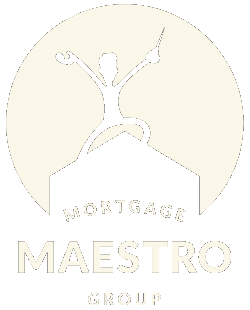A mortgage isn’t just about the dollar amount you’ll pay for a home over the course of 30 years; it’s about how much you can afford to pay monthly as well. In both cases, a lower interest rate equates to reduced costs. How can you lock in a low rate or lower your existing mortgage interest? There are a number of options to consider.
1. Comparison Shop
If you don’t yet own a home and you’re looking to get out of the renter lifestyle, the most important thing you can do is shop around to find the lowest interest rates before you buy. In addition to digital research, make sure to consult with preferred lenders directly, as they may have more information than you’ll readily find online.
Don’t be afraid to ask for a better rate, too. Often, the rate you’re quoted is based on a variety of factors (the prime, your credit score, your down payment, your debt-to-income ratio, etc.), but you never know what you can get simply by asking.
2. Ask About Automatic Payment Plans or Other Potential Discounts
It’s understandable to feel timid when it comes to asking about discounts, but you need to be your own advocate when it comes to getting the best possible interest rate for your mortgage.
Some lenders may offer incentives for enrolling in an automatic payment program, such as a reduced interest rate. Or there might be other ways to secure discounted rates. When you ask, you’ll have the knowledge you need to make informed decisions.
3. Look into First-Time Buyer Programs or Other Programs You May Qualify For
All kinds of groups may have access to special interest rates when buying a home. If you’re a first-time buyer, for example, you could get into a program that helps you in a number of ways.
First-time buyer programs may include benefits like reduced interest rates, credit expectations, and minimum down payment. They might even offer assistance with your down payment or funding for the purpose of repairing and remodeling a fixer-upper property.
Federal Housing Administration (FHA) mortgages are a great option for buyers with lower credit scores, and they offer a range of grants and specialized mortgage programs you may qualify for.
If you’re a veteran (or qualifying spouse), you may be eligible for mortgage benefits through the Office of Veterans Affairs (VA). The U.S. Department of Agriculture (USDA) also has a program for low-income buyers in certain areas.
4. Establish a Solid Credit History
Paying your bills in full and on time is the best long-term strategy for establishing an unblemished credit history and building a top-tier credit score. It’s not the only factor — you also need to keep debt low, be careful with credit cards, and try to diversify credit types — but a clean payment history is essential to a good score.
5. Improve Your Credit Score
Like many adults, you may have had a few stumbles where your credit is concerned. Perhaps you got in over your head with a car payment you couldn’t afford, you went a little nuts with your first credit card, or you’re carrying quite a bit of student loan debt.
Regardless, there are ways you can work toward clearing black marks and improving your credit score. Making payments on time and in full is vital, as is working to reduce debt. If you’re struggling, consider working with a company that specializes in debt management and reduction.
6. Reduce Debt
If your credit score is already pretty impressive, the next thing you might want to consider is the debt-to-income ratio you carry. When you have a student loan, an auto loan, credit card debt, and other debts, they can all add up and count against your income.
Mortgage lenders not only want to see a strong history of paying debts; they also want to know you can take on the additional debt of a monthly mortgage payment. High income and low debt help you to protect a good credit score and impress lenders, so it’s wise to reduce debt before seeking home mortgage approval.
7. Make More Money
It may sound silly. After all, we’d all make a lot more money if we had our way. With that being said, if you’re going to consider reducing debt as a way to improve your credit score and ultimately qualify for lower interest rates, then it’s worth considering the impact a higher salary could have.
If buying a home at the lowest possible rate is a priority, then consider looking for opportunities to earn more, at least in the short term, so you can pay down debt quicker, clean up your credit score faster, and improve your debt-to-income ratio immediately.
Whether you seek a promotion, find a better job, or take on a second job, higher income can quickly equate to better mortgage interest rates.
8. Buy Down Points
Mortgage points are related to your interest rate and the total value of your mortgage. How does it work? One point reflects 1% of your mortgage value. So if your home costs $300,000, a point would be $3,000, meaning you have to pay this amount to buy your mortgage interest down one point.
A point typically equates to 0.25% of your interest rate. So if you bought down one point on a 5% interest rate, your new rate for the life of your mortgage would be 4.75%.
On a 30-year, fixed-rate mortgage with no down payment, for example, this would save you only about $45 per month, but over the course of the mortgage, you would save $16,388. That’s pretty good for paying $3,000 upfront.
9. Amass a Sizeable Down Payment
Generally speaking, you should expect to pay a minimum down payment of 3 to 5% of the home value when you buy, although it can differ from state to state and from one lender to the next. The amount may be even lower with some specific mortgage programs.
If you can put 20% or more down, however, you can avoid paying the additional expense of mortgage insurance and potentially secure a lower interest rate in the process.
10. Consider a Shorter Mortgage Term
Fixed-rate mortgages are typically offered in a range of terms, such as 30, 20, 15, or 10 years. There are also variable rate mortgages, which can have a slew of different terms. When you choose a shorter mortgage term, you’ll have to pay more monthly, but you could qualify for a lower interest rate and save a ton on interest payments in the process.
11. Choose a Fixed-Rate Mortgage
You’ll notice right away that variable-rate mortgages often have lower rates than fixed-rate options. With that being said, fluctuations in the economy, and specifically the prime rate (which acts as a basis for lenders), could increase over time, taking your interest rate and payments along for the ride.
On the other hand, if you buy when rates are peaking, you could reasonably anticipate a drop, saving you money along the way. If rates are relatively low when you buy a home, though, a fixed rate offers a level of stability that will likely save you in the long run.
12. Refinance at the Right Time
If you already own a home and you’re looking to decrease your interest rate, there’s really only one way: refinancing.
This is a situation in which crunching the numbers really counts. You’ll have to pay a fee for the refi, but if interest rates have dropped significantly, you earn a lot more money, you’ve paid down quite a bit of debt, and/or your credit score is much better, refinancing could save you a lot over the course of paying off your mortgage.
If you’re ready to take on a mortgage or refinance and you want the best rates, contact the experienced professionals at Mortgage Maestro Group today to get started.












